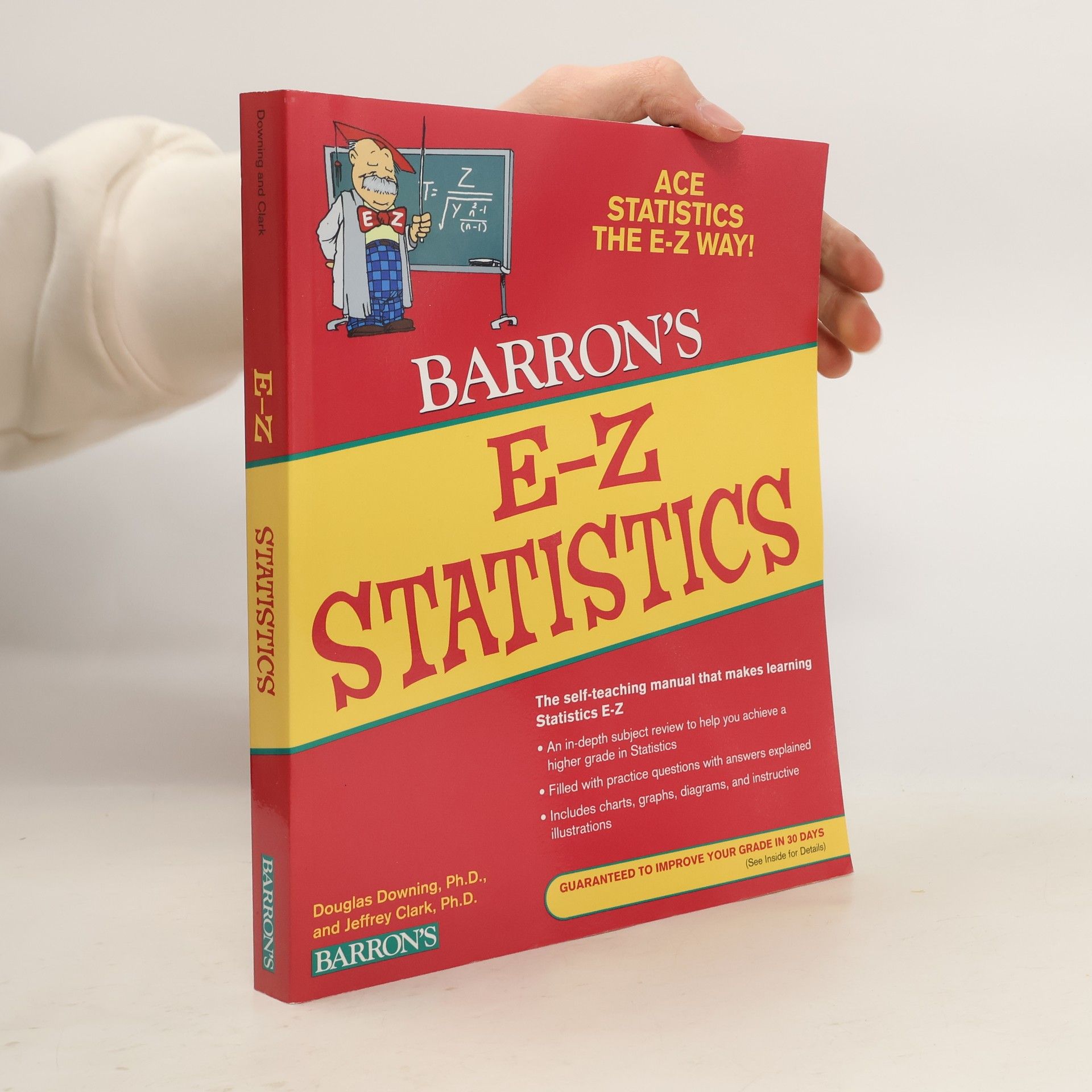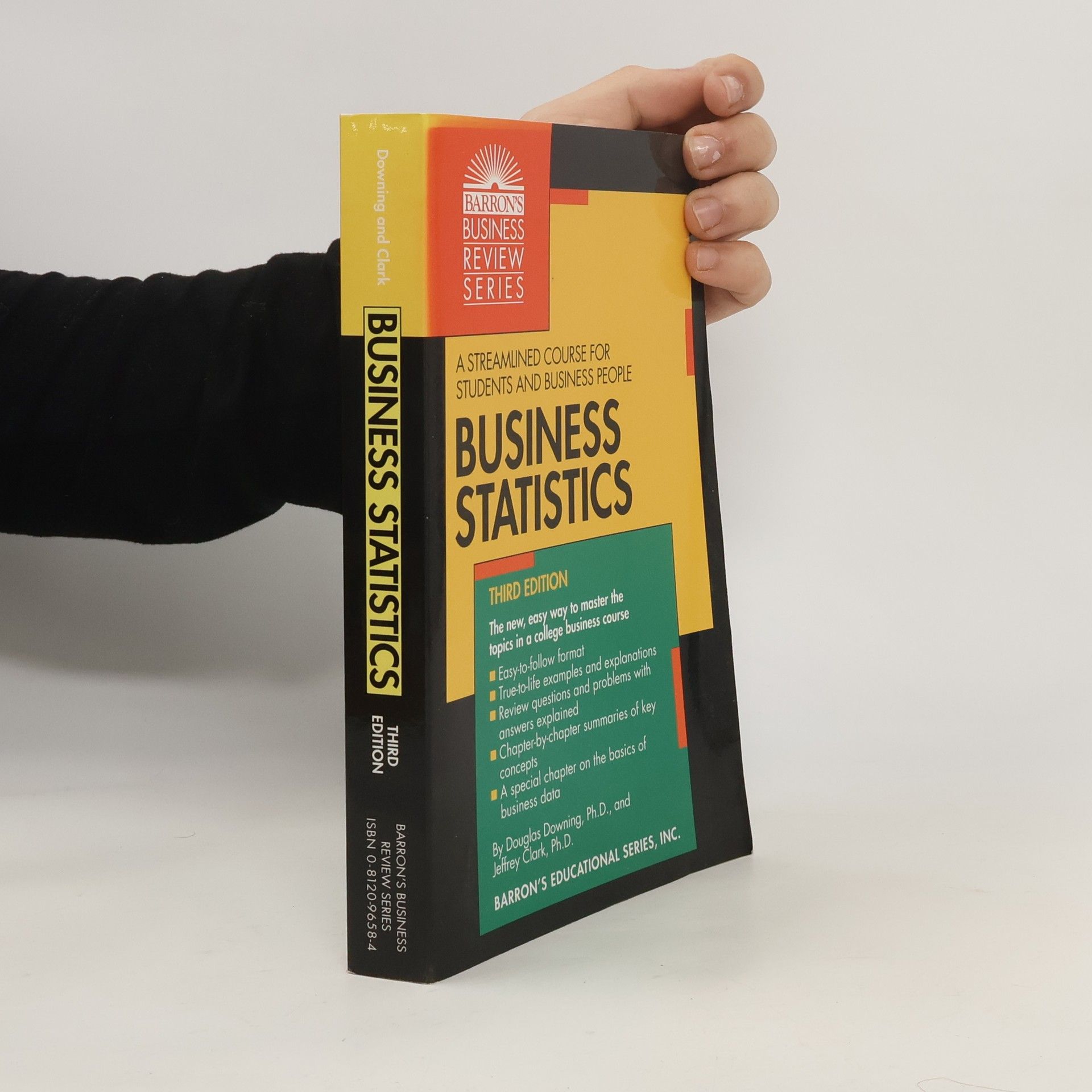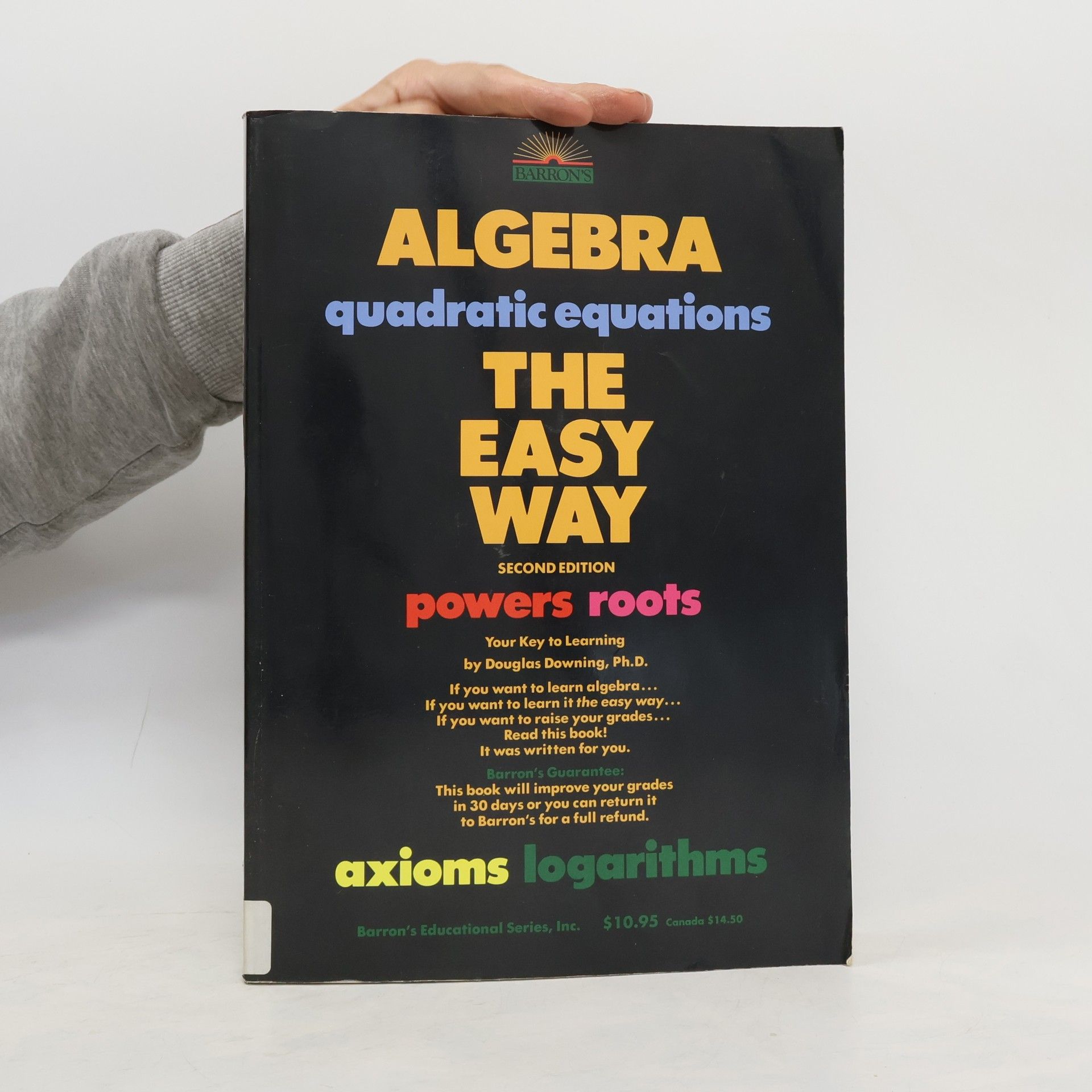The book has No marks or highlights inside pages, spine is clean and tight. Owner name on the tail of the book.
Douglas Downing Boeken
Het werk van Douglas Downing verkent voornamelijk economie en kwantitatieve methoden. Als universitair docent en directeur van de bacheloropleiding aan de Seattle Pacific University maakt hij complexe economische concepten toegankelijk. Zijn schrijfstijl kenmerkt zich door een streven naar duidelijkheid en toegankelijkheid, wat blijkt uit zijn bijdragen aan de series 'Easy Way' en 'Business Review'. Downing richt zich op het ontraadselen van economie voor een breed publiek.





Dictionary of computer and Internet terms
- 592bladzijden
- 21 uur lezen
Computer technology is constantly developing, which is why this title has undergone a complete revision, making it a virtually brand new quick-reference book for all computer users. The authors have expanded it to include more than 2,500 alphabetically arranged computer-related terms and definitions. They emphasize what they call the “human side” of computing, explaining terms as well as defining them in clear non-technical language wherever possible. Filled with enlightening illustrations, diagrams, and tables.
A manual on the fundamentals of algebra includes explanations of equations, negative numbers, exponents, roots, functions, graphs, and logarithms
Business Statistics
- 510bladzijden
- 18 uur lezen
Summarizes the essential concepts of business statistics, covering probability, random variables, polls and sampling, hypothesis testing, and measuring business data.
Known for many years as Barron’s Easy Way Series, the new editions of these popular self-teaching titles are now Barron’s E-Z Series. Brand-new cover designs reflect all new page layouts, which feature extensive two-color treatment, a fresh, modern typeface, and more graphic material than ever— charts, graphs, diagrams, instructive line illustrations, and where appropriate, amusing cartoons. Meanwhile, the quality of the books’ contents remains at least as high as ever. Barron’s E-Z books are self-help manuals focused to improve students’ grades in a wide variety of academic and practical subjects. For most subjects, the level of difficulty ranges between high school and college-101 standards. Although primarily designed as self-teaching manuals, these books are also preferred by many teachers as classroom supplements—and for some courses, as main textbooks. E-Z books review their subjects in detail, and feature both short quizzes and longer tests with answers to help students gauge their learning progress. Subject heads and key phrases are set in a second color as an easy reference aid.Barron’s E-Z Statistics presents easy-to-understand explanations of probability, random variables, distributions, laws of large numbers and the central limit theorem, polls and sampling, linear regression, and much more. Hundreds of exercises with selected answers.